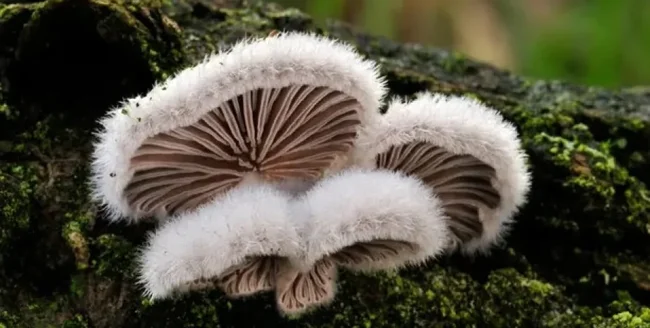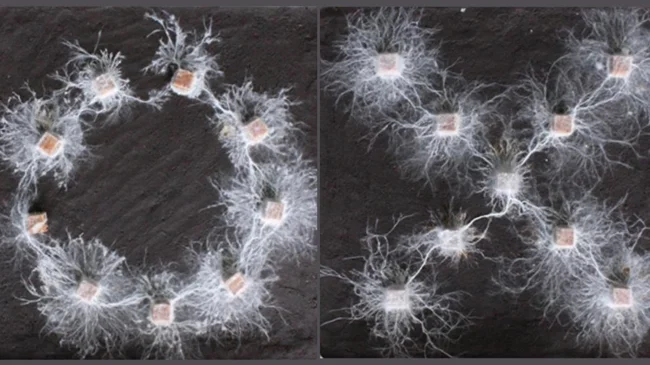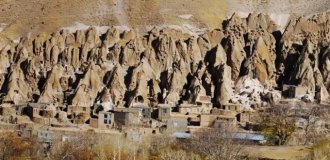In Japan, Scientists Have Discovered That Mushrooms Are Able to Orient Themselves in Space and Make Decisions (2 photos)
The study looked at how wood-decomposing fungi responded to different spatial arrangements. 
Scientists in Japan have studied fungi and found that these brainless organisms can demonstrate intelligence — making decisions, recognizing shapes, and solving problems.
"You'd be surprised at what fungi can do. They have memories, they learn, and they can make decisions. Frankly, the differences in how they solve problems compared to humans are mind-blowing," said one of the researchers, Yu Fukasawa of Tohoku University.
The study examined how wood-decomposing fungi, specifically their mycelial networks, responded to different spatial arrangements of wooden blocks. The scientists placed the blocks in two configurations: a circle and a cross.
If the fungi did not have the ability to flatten the solution, they would grow uniformly from a central point, regardless of the position of the blocks. However, what the researchers observed suggests more complex behavior. 
In the cross configuration, the fungi concentrated their growth toward the four outermost blocks. This strategy, according to the scientists, would ensure that the fungi could effectively expand their reach and collect more resources.
Meanwhile, in the circle, the fungi spread evenly across all blocks but left the center of the circle untouched. The researchers speculated that the fungi recognized that there was no advantage to concentrating growth in an area that was already well populated, and instead optimized their resources elsewhere.
"In the case of fungi, their 'intelligence' seems to be based on their ability to process information about their environment and make decisions that benefit the organism as a whole. Our understanding of the mysterious world of fungi is still limited. We know much more about plants and animals than we do about fungi. But this study sheds light on the hidden intelligence of these organisms and how their decision-making processes impact wider ecosystems," Professor Fukasawa acknowledged.
























